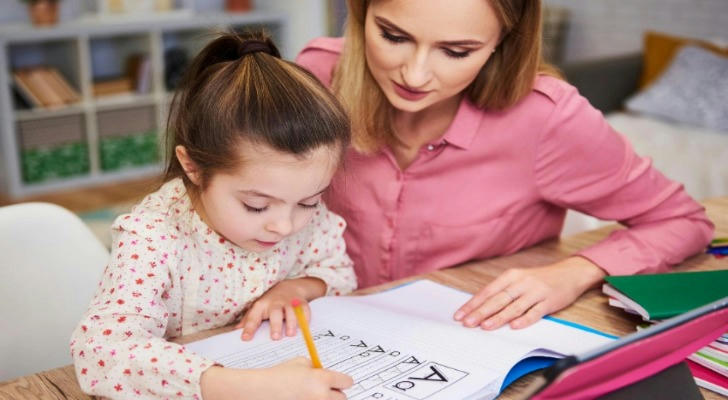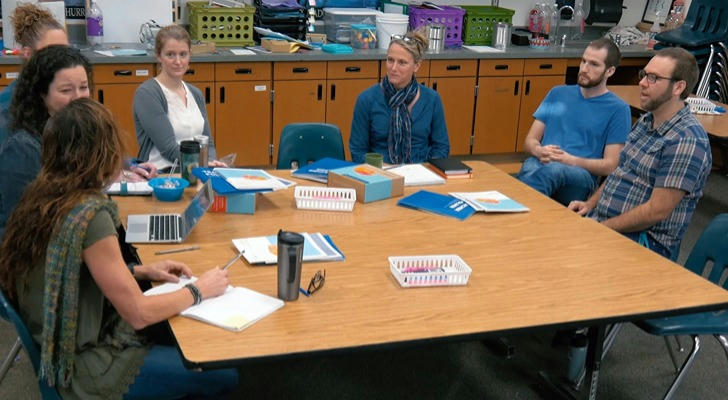How Parents Encourage Children To Learn In The Process Of Educating Their Children
Education is a collaborative effort involving not only teachers and schools, but also parents and guardians. Parents play a vital role in their children's education as they can significantly influence their children's academic success and overall development. In this article, we’ll explore the various ways parents can support their children’s learning, the importance of parental involvement, and practical strategies to enhance their children’s educational experience.
• The importance of parent involvement

Research continues to show that parental involvement in education leads to positive outcomes for children. When parents are involved in their children's learning process, it fosters a sense of security and motivation. Children whose parents are actively involved in their education tend to have better academic performance, better behavior, and stronger social skills. Additionally, parent involvement helps build strong home-school connections and creates a support network for the child.
The Impact of Parental Engagement
Take Sophia, a fifth-grade student with poor reading comprehension skills. Her parents noticed her increasing disillusionment with schoolwork. They decided not to rely solely on the teacher's support but to actively participate in her education. They began setting aside time each evening to read to her, discuss stories, and ask open-ended questions to encourage critical thinking.
In addition, they communicated regularly with Sophia's teachers to see how she was progressing and any specific areas in which she needed help. As a result of their involvement, Sophia's reading skills improved significantly throughout the school year. She became more confident in her abilities and developed a true love for reading. This case illustrates how parental involvement can significantly improve a child's academic performance and overall attitude toward learning.
• Strategies to support your child’s learning

To effectively support their children's education, parents can employ several strategies to promote a positive learning environment at home. Here are some practical tips:
1. Establish a daily routine
Establishing a structured daily routine helps children understand the importance of time management and responsibility. Parents should set aside dedicated time for homework, reading, and other educational activities. Consistency in daily activities fosters a sense of security and helps children develop good study habits.
2. Create a positive learning environment
A good learning environment is essential for effective learning. Parents can designate a quiet, well-lit space for their children to complete homework and participate in learning activities. Minimizing distractions, such as televisions and mobile devices, allows children to better focus on their tasks.
3. Encourage open communication
It is crucial to maintain open lines of communication with your children. Parents should regularly ask about their children's school life, interests, and challenges. This not only shows that parents care about their children, but also encourages children to express their thoughts and feelings about education. Actively listening to children's concerns helps parents solve problems promptly and effectively.
4. Develop a growth mindset
Encouraging a growth mindset—the belief that abilities can be developed through hard work and dedication—can significantly impact children’s attitudes toward learning. Parents should praise their children for their efforts, not just their achievements. This approach helps children understand that persistence and resilience are keys to overcoming challenges.
5. Participate in school activities
Participating in school events such as parent-teacher conferences, open days and volunteering can keep parents connected to their child's educational environment. Participation in school activities not only strengthens parent-teacher relationships but also shows children that their education is a priority.
6. Support extracurricular activities

Encouraging children to participate in extracurricular activities can improve their social skills and provide opportunities for personal growth. Parents should support their children's interests, whether it's sports, arts or clubs, as these activities can complement their academic learning and promote a well-rounded education.
• Build collaborative relationships with teachers

To maximize their impact on their children's education, parents should strive to build collaborative relationships with teachers. This partnership can be achieved through regular communication, attendance at school events and active participation in discussions about the child's progress.
Steps to Foster Collaboration:
1. Schedule Regular Meetings: Parents should schedule regular meetings with teachers to discuss their child's academic performance and any concerns. This proactive approach allows for early intervention if a problem arises.
2. Share insights: Parents can provide valuable insights into their children’s learning styles, interests, and challenges. Sharing this information with teachers can help them adjust their approach to better meet the needs of children.
3. Follow-up: After the session, parents should follow up with the teacher to ensure that agreed-upon strategies are being implemented and to discuss any changes in their child's behavior or performance.
4. Support: Parents should express gratitude for teachers’ efforts and maintain a positive attitude. Supportive relationships foster a collaborative atmosphere that is conducive to your child’s education.
The role of parents in education is crucial to their children's academic success and personal development. By actively participating in their child's learning process, establishing daily routines, promoting open communication, and collaborating with teachers, parents can create a supportive environment that encourages growth and achievement. As Sarah's case shows, parental involvement can significantly improve a child's educational experience. Ultimately, when parents and educators work together, they empower children to reach their full potential and develop a lifelong love of learning.
